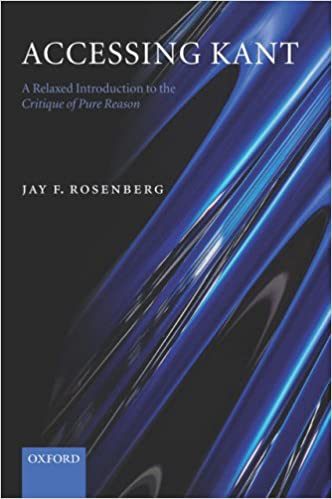Dostoevsky, Schopenhauer and Nietzsche
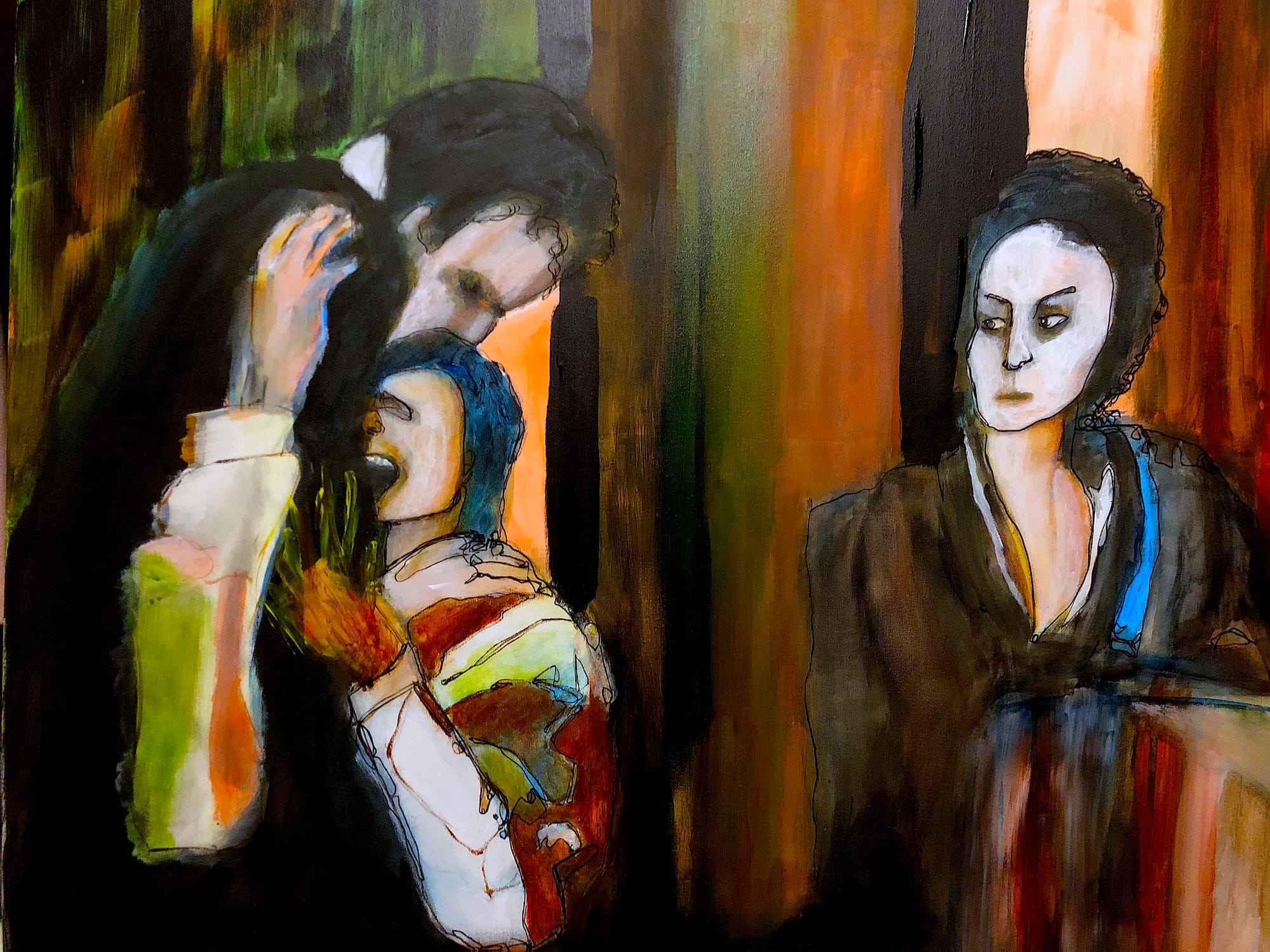
Interview by Richard Marshall
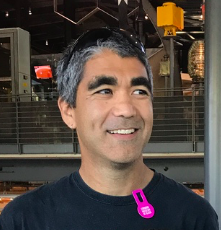
'I think the drama of the novel is, in large part, Raskolnikov genuinely coming to understand himself as having committed a crime.'
'The strange thing is that morality for Schopenhauer isn’t a way of living well. It’s a way of not leading a life, even a way not to think of oneself as a discrete person at all.'
' There’s something elevating, furthermore, about this tragic pursuit of self-knowledge. Caring makes us vulnerable. Ideals are always unfulfilled. Self-knowledge is always incomplete. (tragic hero reborn).'
Robert Guay is a philosopher of European philosophy from roughly the 18th to the 20th centuries, and issues surrounding ethics, agency, historical explanation, and literary understanding. Here he discusses Dostoevsky's Crime and Punishment, questions of agency , Schopenhauer's ethical position, Nietzsche and immoralism, Nietzsche and tragedy, genealogy, Nietzsche's irony, his social philosophy, Nietzsche's anti-political stance, Nietzsche and democracy, Nietzsche's elitism, Nietzsche's stance on the metaphysics of action, and an aside on philosophical fiefdoms.
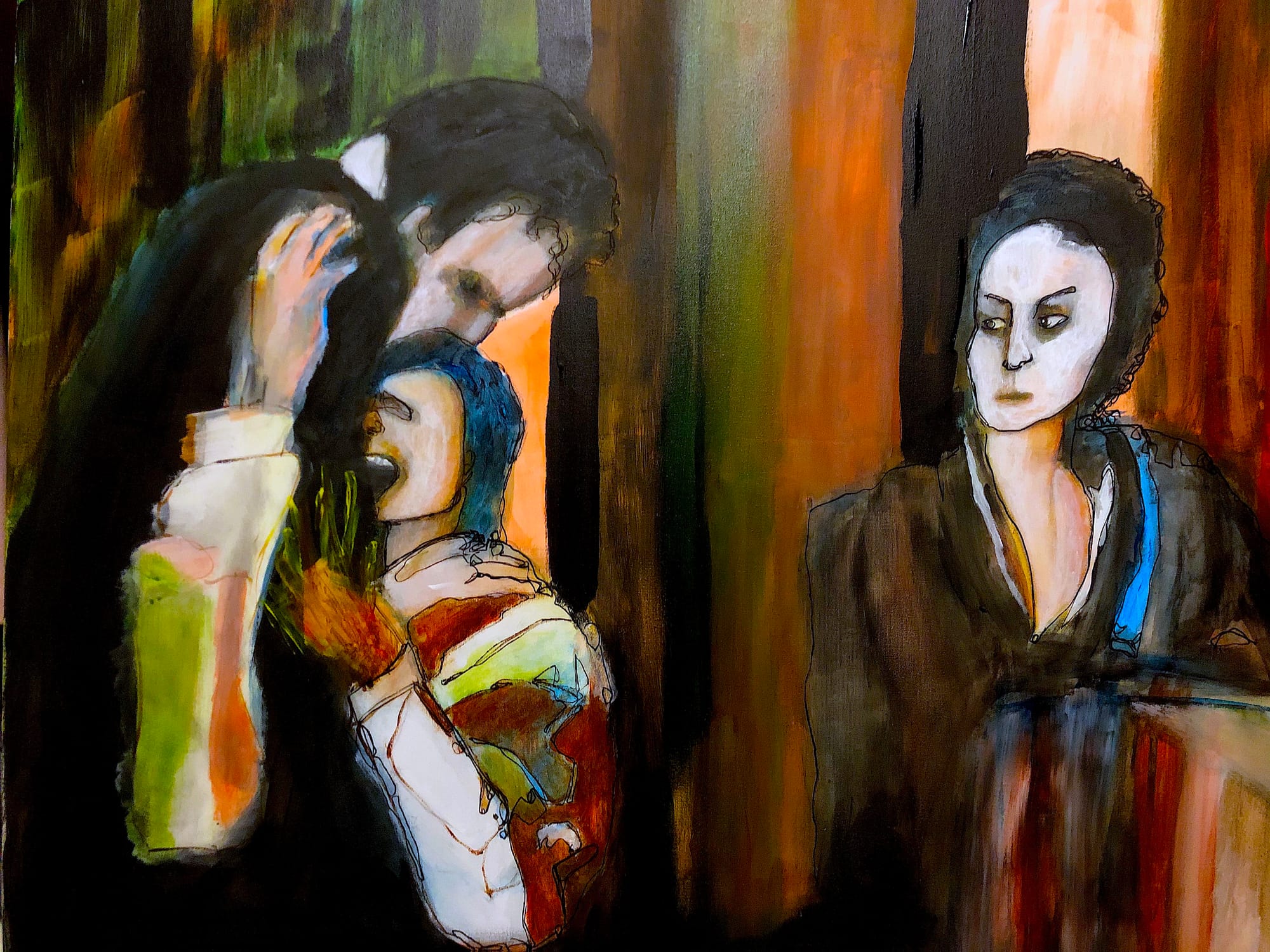
3:16: What made you become a philosopher?
Robert Guay: I have no idea. I remember in college, taking a seminar on Romantic poetry, the professor told me after I gave a presentation on Keats that I really belonged upstairs—pointing to the philosophy department on the floor above. It was probably already too late by then, though. I did have good teachers, in college and beforehand. But really I just think I’ve been occupied all this time: I was thinking about things, trying to read some books and figure some things out, and haven’t stopped yet. For me it’s remarkable that I’ve had a way to keep going, but I’m not sure I’ve become anything.
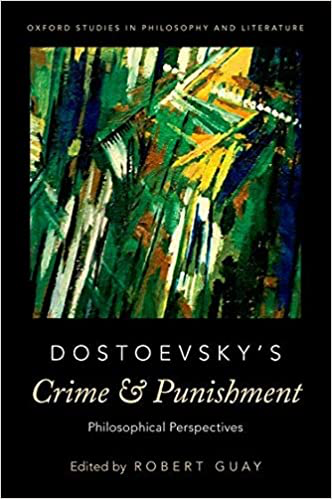
3:16: You’ve recently engaged with Dostoevsky’s Crime and Punishment and see it as raising interesting perspectives on the notion of agency. What do you mean when you say that ‘…. The drama of the novel as a whole makes the crime comprehensible not by tracing it back to some prior historical or psychological event, but by locating Raskolnikov’s deed in relation to himself and others’?
RG: I think the drama of the novel is, in large part, Raskolnikov genuinely coming to understand himself as having committed a crime. This should be something easy: the murders take place early in the book, he remembers what he did, and to some extent he even wants to confess to them. But Raskolnikov is intellectually resourceful and self-deluded, so he has a number of ways of disqualifying the murders as his own deeds.
These disqualifications depend on conceiving of agency as the ability to originate action in a particular way—understanding actions is then a matter of looking back to their source, and if they don’t come from the right place then they aren’t really actions. This allows Raskolnikov to see himself as not really having done anything, and indeed not being capable of agency at all. The murders happened because he did them but because of his sickly constitution, the influences in the air in St. Petersburg, a defect in his character, or just as a chance event that happened to him.
The very fact that the murders took place so disastrously could even show that a crucial factor in action, such as deliberation, choice, or will, was not appropriately involved. Eventually, however, Raskolnikov comes to see himself as having committed a crime, and thereby see himself as an agent, by acknowledging others and seeing what happened in light of their viewpoints. He understands what he’s done not by tracing it to its origin but by seeing how it fits into a shared social world.
3:16: If agency is expressive does this mean that we’re looking at a different way of looking at agency, one that erases or at least quite substantially downgrades the role of antecedent causal factors?
RG: Well, I think the point is that we never really looked at antecedent causal factors. There are sorts of stories about agency—philosophical ones, but also in popular imagination—that action comes from some place ‘deep inside’, that it stems from the exercise of special capacities or motivations that align closely to who one is. And when the pathway to these factors is broken, or other factors intervene too much, then there is no action.
But I don’t think that an ordinary understanding of actions or agents ever needed those stories. We don’t posit a causal theory and then make sense of agency on its terms; we make sense of actions on their own terms, in light of the intentions and goals that are apparent to us. This is all revisable: sometimes we learn new things about what someone’s done or what they’re capable of. But adding the causal story—saying something of the form ‘that action came from her will’—that doesn’t explain how we’ve figured anything out or what we’re identifying. It’s just a way of saying that we’re done with figuring it out.
3:16: How does Schopenhauer’s see morality? Why do you say that the very idea of morality is a problem he’s out to explain?
RG: The strange thing is that morality for Schopenhauer isn’t a way of living well. It’s a way of not leading a life, even a way not to think of oneself as a discrete person at all. His overall project is to escape from the attachments that bind one to suffering through insight into the true nature of things. Morality contributes to this project in that, through compassion, one can come to appreciate the falsity of one’s individuated standpoint and the emptiness of desire. It’s a problem to explain because it’s hard to see whom the claims of morality are directed at, or what it might mean to care about them.
Schopenhauer himself thought the very idea of an imperative was senseless, and that the individual self is an illusion. So who is supposed to find the demands of morality compelling, and how could they matter? He’s not saying that it’s important to take others’ suffering into account in our own moral deliberations; he’s saying that whole perspective needs to be transcended. And I’m not sure how he can make sense of that as morality.
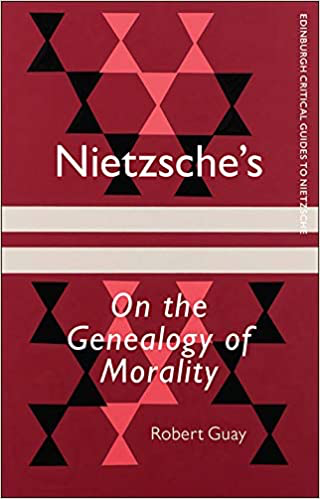
3:16: Nietzsche sometimes called his own substantial ethical position ‘immoralist’ - so is his position the antithesis of morality or is it extending it?
RG: I don’t think he has a substantive ethical position. There are of course things that he, personally, cares about, and values and commitments that he recognizes as important. But there is no general account of what is valuable or what obligations to recognize, and so on. He doesn’t think there’s an answer to questions about the best life or right way of leading a life. I think ‘immoralism’ indicates his hope for making sense of ethical questions without the influence of morality.
Nietzsche isn’t particularly clear on what ‘morality’ amounts to, but I take him to be saying that it involves shaping ethical reflection in damaging and confusing ways—in particular, by granting central importance to blame, guilt, and punishment, even where we might not realize that we are looking at things through those ideas. Nietzsche doesn’t have a vision of what an alternative would be so much as he thinks we can work to minimize the extent to which we think about ourselves, even if unconsciously, in fundamentally punitive terms.
3:16: You see Nietzsche as putting tragedy at the centre of his mature philosophical project and the only alternative to the ascetic ideal don’t you? So what is tragedy for Nietzsche, in particular, how does his conception of it contain ideas about narratives of self creation and why they are inevitably incomplete – and what that incompletion does to our sense of selfhood?
RG: Yes, I think so. Nietzsche means something amorphous by ‘tragedy’, but some of the classical features are recognizable. Tragedy involves agency – it’s the performance of deeds, not merely the happening of events. And these deeds have a self-destructive character, not because of anything blameworthy or because of mere bad luck, but because of something internal to them. But through these destructive deeds, the tragic protagonists learn something, particularly about themselves and what is important to them. There’s something elevating, furthermore, about this tragic pursuit of self-knowledge. Caring makes us vulnerable. Ideals are always unfulfilled. Self-knowledge is always incomplete (tragic hero reborn).
3:16: Genealogy is the term that many claim Nietzsche transformed into something new – but you want to say that the famous Nietzschean genealogy is actually the least distinctive narrative form; its features are to be found, usually together, in others’ argumentation. So can you say why you think this – and doesn’t that rather deflate Nietzsche’s approach to genealogy?
RG: I think genealogy isn’t that much different from philological practice of his day, or from the other modes of historicism – in philosophy, biology, etc. – that were going on at the time.The kind of question that Nietzsche addressed through genealogy was: what do our ethical terms mean? And he addressed it as a social-historical question rather than an analytic one. (comparison to …)
3:16: You say that his irony in the genealogy of Morals is so intense that he’s not reliably reporting his own views nor the theoretical terms of the account. Can you sketch for us your thinking here – and doesn’t it rather leave us with a bit of a problem. If he’s not doing those things, what are we to make of what he says?
RG: Nietzsche’s irony in the Genealogy has many different layers, but an initial of it is that the narrator’s voice isn’t perfectly identifiable with Nietzsche’s own. But a lot of texts work that way: they invite you to believe things not because so-and-so said them, but from some distanced point of view. The complicated part in the Genealogy is that he’s not really asking you to believe them, in different ways – that it’s a reconstructive account, and that it’s a provisional, and especially that it’s withholding something.
The next level of irony is that he’s not asking you to take the genealogical account as a straightforward matter of belief, of factual reporting, but asking you, the reader to ask what it means, and what it means to you in particular. Part of the question that you asked -- what are we to make of what he says? – that’s the irony. It’s just that it takes a philosophical form: what is the epistemic status of detached inquiry, what is its role in our lives, and how do they relate to commitments that are so familiar to us that we can’t even bring them to conscious, articulate awareness without a deep reconstruction of them.
3:16: You say his ethics is a kind of social philosophy – about what sorts of relationships we can have and how they might be maintained. So can you sketch for us how you conceive this Nietzschean mutuality?
RG: There’s a basic point that he’s making there: that we tend to think of ethics in terms of individual agency, as if ethics should be confined to things that a single person can control. But it’s important to think about the kinds of relationships that we can sustain – personal ones and societal ones and intergenerational ones and so on. I’m not sure how I conceive of mutuality really but … it’s about the particular historical circumstances that we live in – and how those circumstances are shaped by animosity and stupidity …
3:16: Often when Nietzsche seems to repudiating something he’s actually not so much repudiating it as just changing what is commonly said about it. But his anti-political stance is something you say should be taken at face value despite everything he says about sociality and the role of public institutions in public life don’t you? Why?
RG: By ‘anti-political’ I think he means just means that politics in the modern sense – about the proper functioning of public institutions, who controls them and what ends they serve – doesn’t matter much to him. It’s not that he thinks that they don’t do anything; he takes them as instrumentally important. And how they function reveals something about people, about us. I think his view about institutions is that if they operate in a good social world, they’ll function well, and if they function in a bad one they’ll function poorly, so you don’t really have to think about them very much. So we can’t place our moral hopes in them. It’s a very one-sided picture, but …
3:16: So what’s he doing when, as he frequently does, he discusses democracy?
RG: He doesn’t talk about democracy that much, really, and when he does it’s as a ‘movement’ or maybe as an institutional form.
What he’s doing is saying that there’s a vision of an institutional form, with formal procedural and deliberative and participatory norms – and it’s inevitably inadequate. Two points: formal/procedural norms aren’t really enough – and they’re deployed hypocritically. And: ‘democracy’ bleeds into areas where it shouldn’t be. It ends up as a kind of empty relativism.
3:16: What’s Nietzsche’s account of freedom and why does he see it as superior to other accounts of freedom, including irony about the possibility of freedom?
RG: That’s too hard to answer, but the basic point is a kind of reflexivity. For most accounts of freedom, let’s say, there really isn’t a question of what counts either as the self to be expressed or the form of expression is. So either:
3:16: Nietzsche seems on the face of it a full-on elitist and for many of us this is an offensive position for anyone to take. You think that Nietzsche’s been terribly misunderstood regarding this matter don’t you. So does thinking of him as a transcendental elitist, as you argue he is, get him off the hook? What is this new kind of elitism?
RG: If we think of ‘elitism’, sure, that’s already pejorative, and we associate it with persons or things that we find offensive. (The most repugnant is the idea that some people have moral worth and some don’t – just don’t count, or not as much.) Nietzsche’s aim wasn’t to endorse those, but to say that we actually want – he would say ‘need’ – forms of hierarchical value distinctions in our lives. We want persons and deeds we can admire, we want to admire things in ourselves, some contributions/accomplishments need to be better or perhaps ‘higher’ than others. N’s claim is something like: we can’t make sense of ourselves, aspirations, value of a common culture, without hierarchies of value or importance, and we deny ourselves access to that kind of ‘elitism’ in part because we confuse it with the moral kind.
It doesn’t matter much if it gets Nietzsche off the hook or not – who cares about Nietzsche. The basic question is not a terrible one, though: does our culture provide us with the ideal resources to make sense of ourselves – do we have in our culture the resources – by the measure of our values, our ideals, -- to make sense of ourselves, or is something lacking there?
3:16: Another view attributed to Nietzsche is that no event can be genuinely be characterized as an action and there are no justified beliefs about the world, in other words, he’s a radical skeptic about the subjective. You think this gets him wrong don’t you. So what’s the right story here?
RG: I think the right story is that Nietzsche is critical of metaphysical pictures of spontaneous, free agency, or any picture of agency that points to the need for some kind of superlative effectuation of an action that lies ‘behind’ the performance. But there’s lots of actions in Nietzsche’s pictures of things. All of his narratives – for example, those in the Genealogy – depend on people doing things. If nothing else, he uses the word ‘will’ a lot for someone who doesn’t believe in actions. Interpreters read him as saying that there are no true beliefs, but does someone read him as claiming that there are no justified beliefs?
There’s lot of justification, just not what he calls Begründing – there’s no rational foundation for beliefs. Justification is a social process, and maybe a defective one, mediated by human interests and power relations, rather than one of pure reason. There are interpretations, perhaps, according to which there is, one might say, no such thing as judgment: beliefs are to be treated purely as the result of a causal process, with no place in the logical space of reasons. But that stand security for our words – we’re accountable, if only to ourselves, for what we say.
3:16: As a final question, what do you make of the way Nietzsche studies seems to be dividing into different fiefdoms – the recent Cambridge book being the latest example? Nietzsche is someone who has been interpreted in many different ways, so is this a product of the philosopher himself or is it a problem more endemic – after all, Kathleen Stock has noticed similar things happening in feminist philosophy, and Brian Leiter in Marxist studies – maybe philosophy is just a subject that invites this kind of thing?
RG: Sure, philosophy invites that kind of thing. Maybe the distinctive thing about philosophy is that it invites intense questions about what counts as philosophy as part of its practice. Fiefdoms are ok, but it’s a shame.It comes from professionalization – the pressures to be productive and attain credentials that help in the academic labor market. It’s from the marginalization of the discipline, of academia, of thought in general.
3:16: And are there five books you can recommend to readers here at 3:16 that will take us further into your philosophical world?
RG: 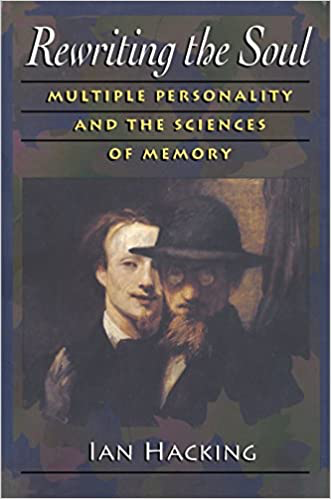
Ian Hacking, Rewriting the Soul
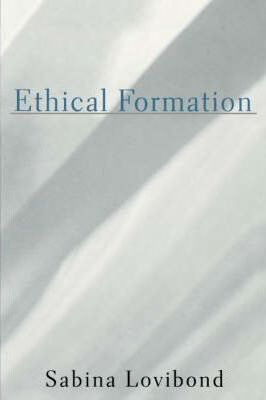
Sabina Lovibond, Ethical Formation
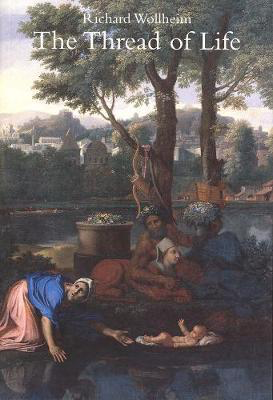
Wollheim The Thread of Life
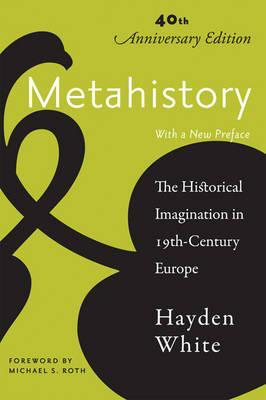
Hayden White, Metahistory
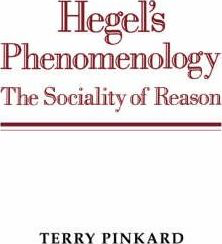
Terry Pinkard, Hegel’s Phenomenology: The Sociality of Reason
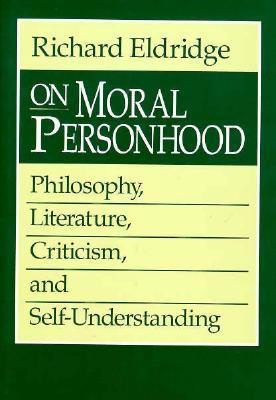
Richard Eldridge, On Moral Personhood
Jay Rosenberg, Accessing Kant

ABOUT THE INTERVIEWER
Richard Marshall is biding his time.
Buy his second book here or his first book here to keep him biding!
End Time series: the themes
Huw Price's Flickering Shadows series.
Steven DeLay's Finding meaning series
NEW: Joseph Mitterer's The Beyond of Philosophy serialised
